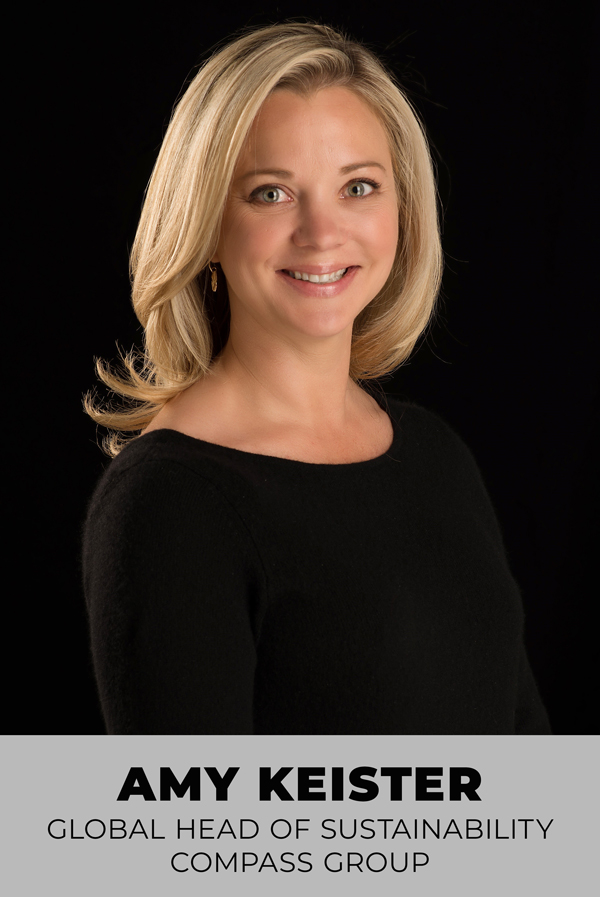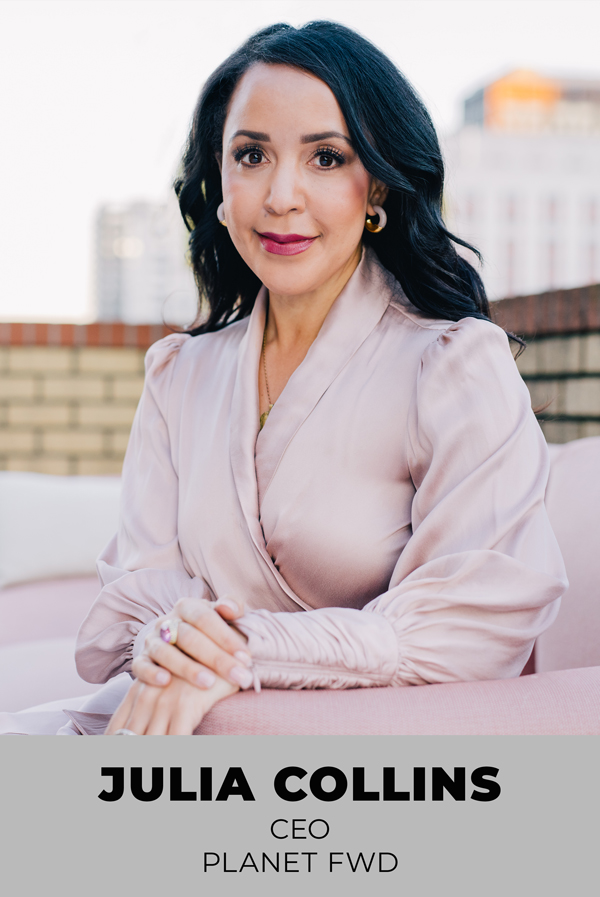Innovating Sustainability in Food Service: A Conversation with Julia Collins and Compass Group

 Amy Keister, Global Head of Sustainability for Compass Group, recently spoke with Julia Collins, CEO of Planet FWD, to discuss reducing scope 3 emissions and the future of sustainability in the foodservice industry. Planet FWD, Compass Group’s climate consultant, is a leading climate management platform. The discussion centered on how Planet FWD is leveraging technology to help companies address scope 3 emissions, the critical role of supplier engagement in decarbonization, and ways to influence consumer behavior toward sustainable choices.
Amy Keister, Global Head of Sustainability for Compass Group, recently spoke with Julia Collins, CEO of Planet FWD, to discuss reducing scope 3 emissions and the future of sustainability in the foodservice industry. Planet FWD, Compass Group’s climate consultant, is a leading climate management platform. The discussion centered on how Planet FWD is leveraging technology to help companies address scope 3 emissions, the critical role of supplier engagement in decarbonization, and ways to influence consumer behavior toward sustainable choices.
Amy Keister: What inspired you to focus on sustainability and tech, particularly in the food industry?
Julia Collins: I’ve spent the past 17 years at the intersection of food and technology—launching a sustainable snack brand, developing compostable packaging, and more. My mission has always been to use technology to enhance food systems for people and the planet. I founded Planet FWD because I saw significant investment in sectors like manufacturing and construction but very little in the food space, which I believed was a crucial gap to address.
Keister: What makes Planet FWD stand out from its competitors?
Collins: Many companies have net-zero goals but struggle with scope 3 emissions due to complex supply chains. Our approach uses life cycle assessments and artificial intelligence to provide actionable insights. What sets us apart is our commitment to data rigor, flexibility, and a comprehensive approach to measuring scopes 1, 2, and 3, enabling us to support companies like Compass Group in a meaningful way.
Keister: What sustainability trends do you see shaping the future of the foodservice industry?
Collins: There are many exciting trends that Compass Group and others are already exploring. We’re particularly excited about the growth of plant-based and blended options, especially when they’re price-competitive with beef. Another trend is the increased focus on reducing food waste, which not only boosts the bottom line but also resonates positively with people. At Planet FWD, we’re especially focused on supplier engagement right now.
Keister: The majority of our emissions come from scope 3, so supplier collaboration is crucial for Compass Group’s emissions reduction. How can companies engage their suppliers to help reduce emissions?
Collins: This is a huge opportunity. For companies that are growing and succeeding in the market, reducing emissions can be difficult unless you change how suppliers produce goods. Your team’s vision for engaging top suppliers at the Future Forward meetings hosted with Foodbuy was impressive. By gathering more detailed emissions data, we were able to assess a large number of SKUs, and in most cases, emissions were reduced. The key to decarbonizing the food industry right now is supplier engagement.
Keister: What’s the best way to influence customer behavior toward climate-friendly choices?
Collins: This varies so much depending on the nature of the customer you’re working with. You have to engage with each customer differently, for example, engineers eat differently than university students. What’s important is your willingness to test and learn, to be able to try something and quickly adapt to the feedback you’re getting.
Keister: Julia, this was wonderful, thank you so much for sitting down to chat with me today. Any final thoughts?
Collins: There is no silver bullet solution to achieving our net zero goals. It takes a combination of very well measured and well executed strategies happening simultaneously to make a change. Understanding how to prioritize decarbonization is important. You cannot focus on every category-you must identify the ones that are going to be the most fruitful in terms of investment. Companies also don’t have to tackle everything all at once. It’s a journey.